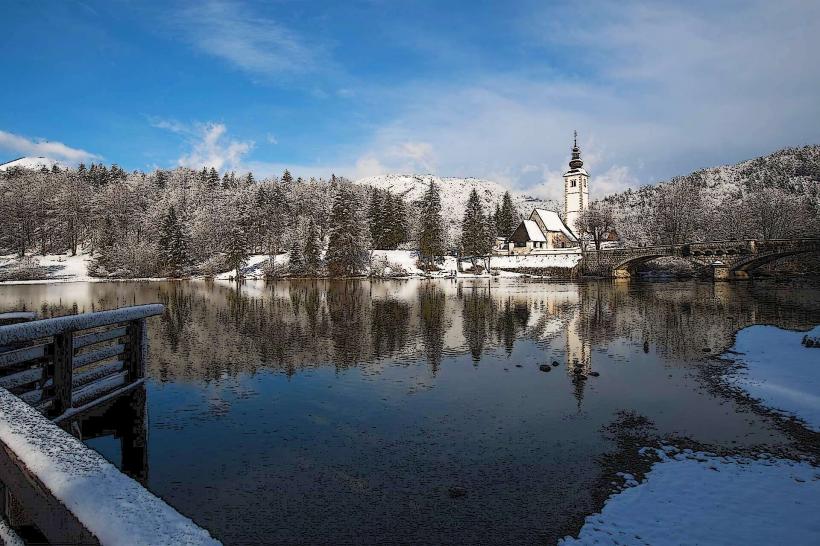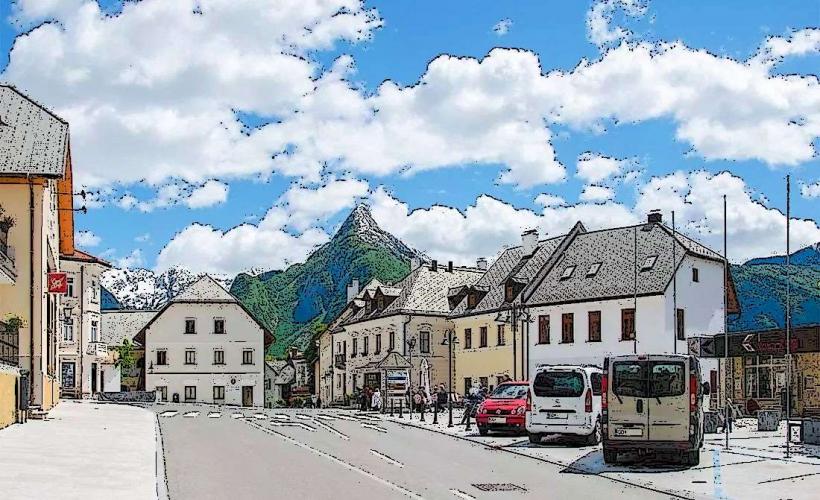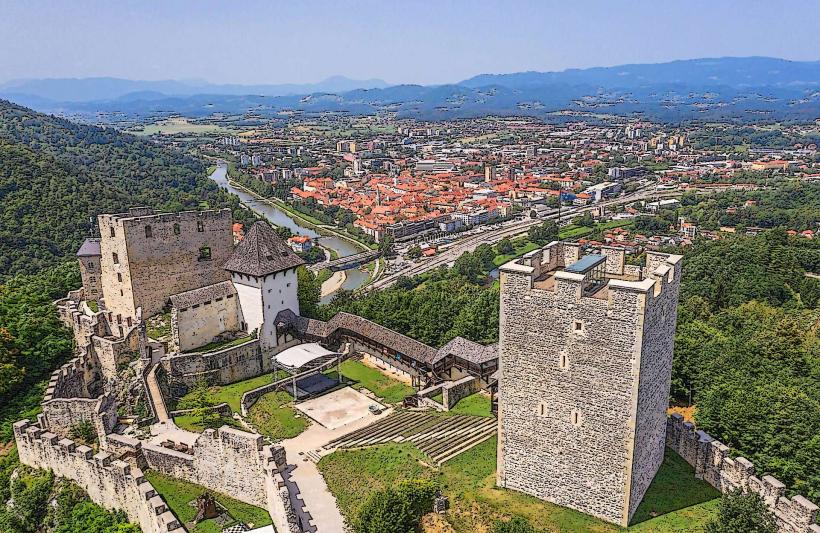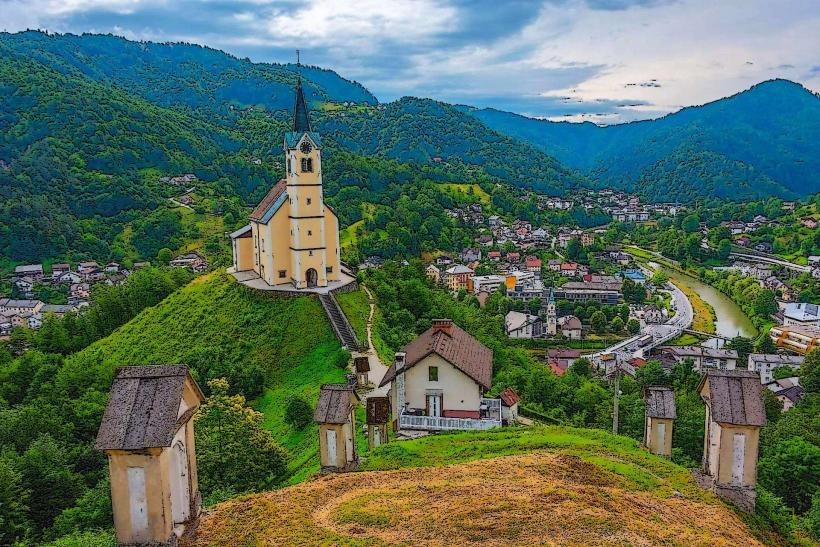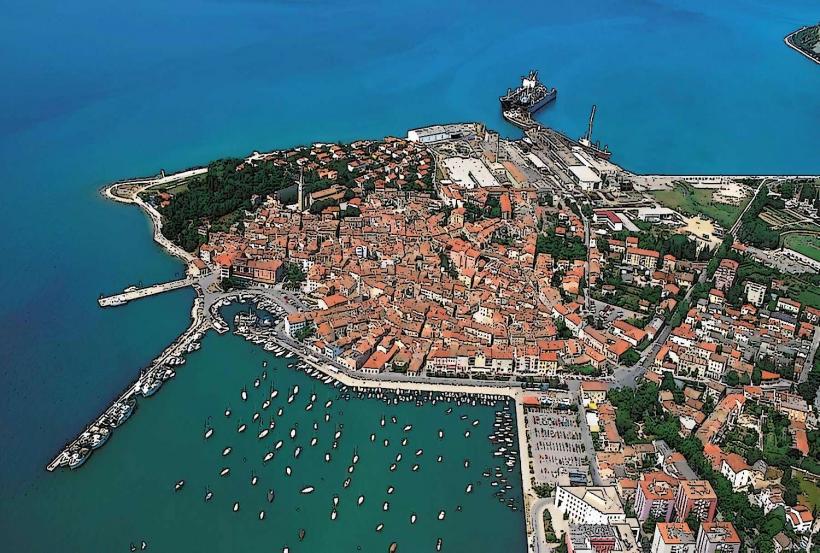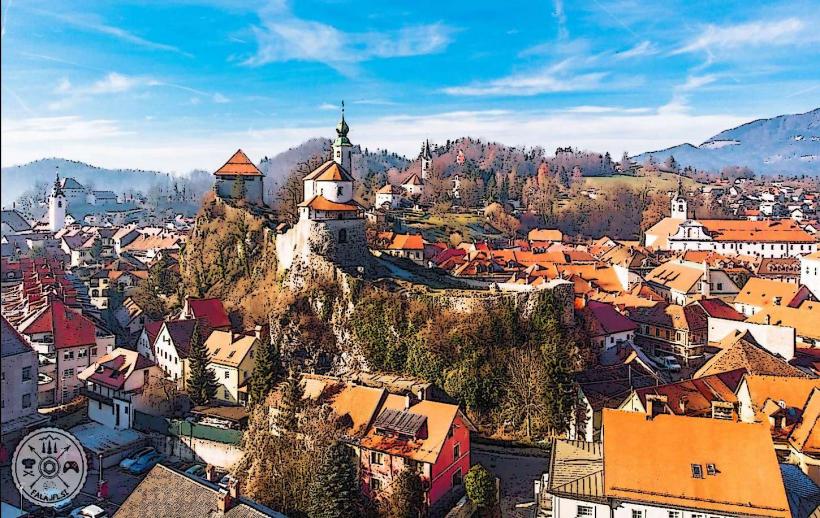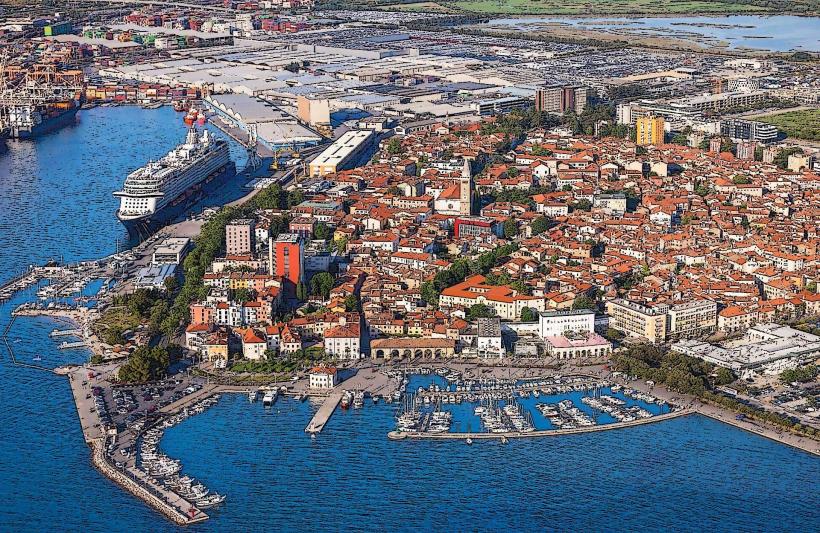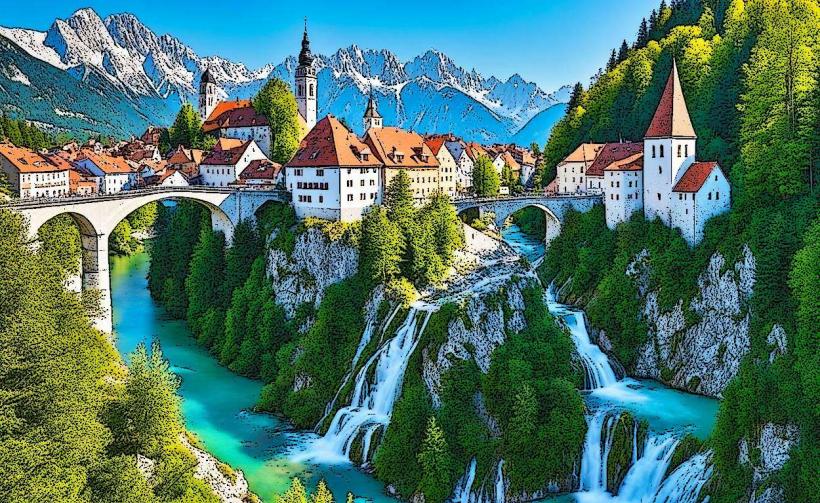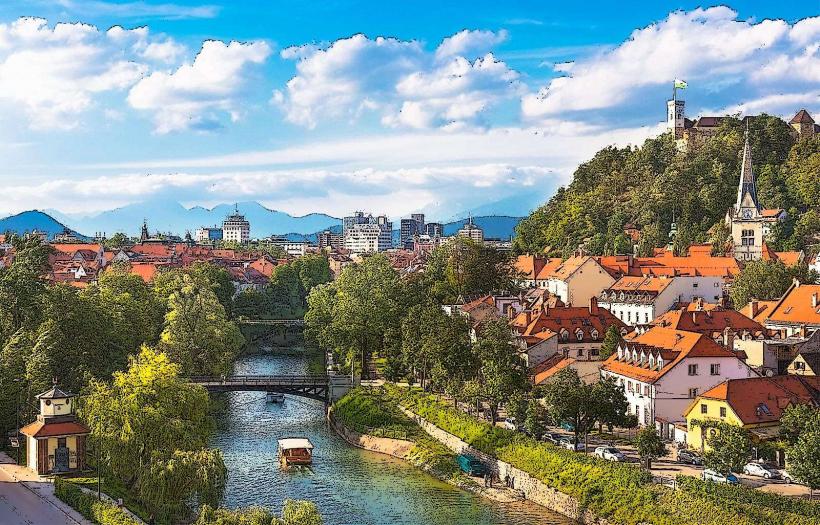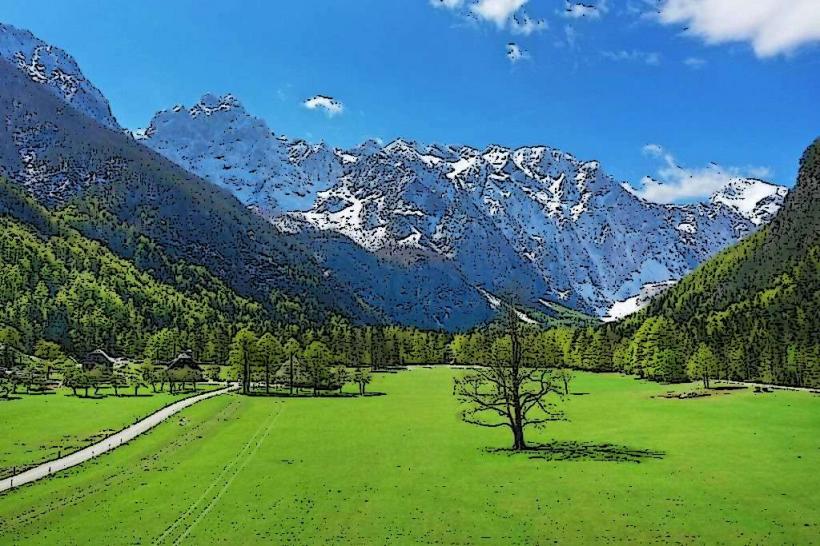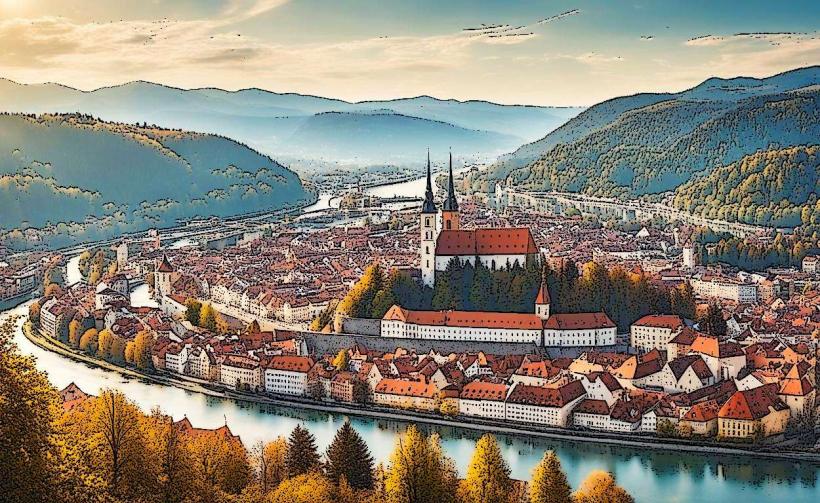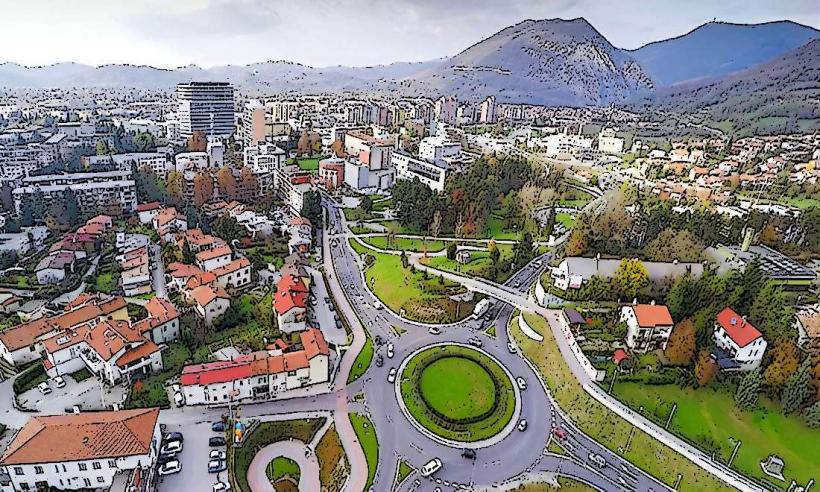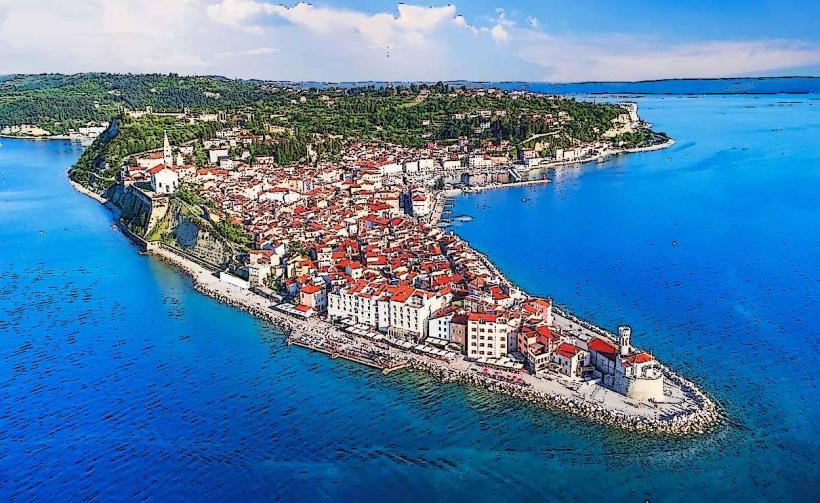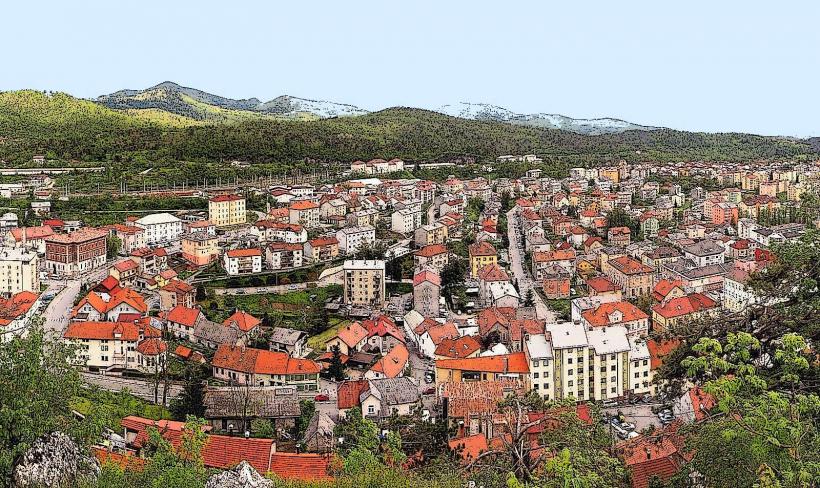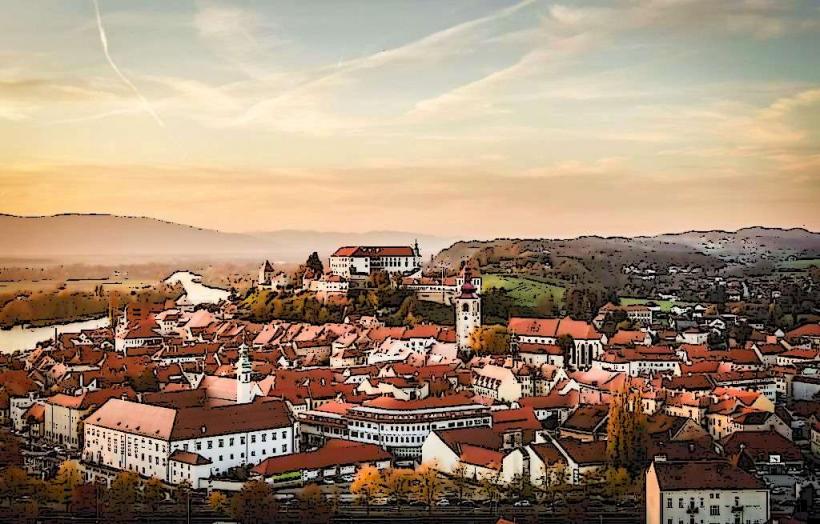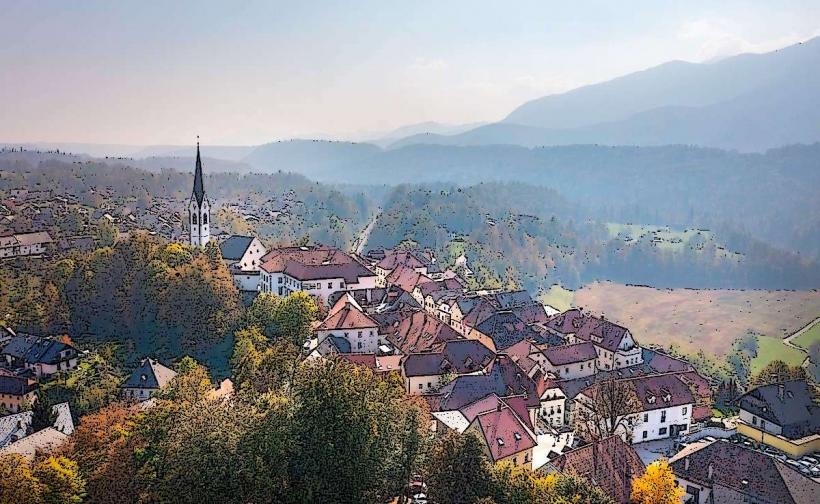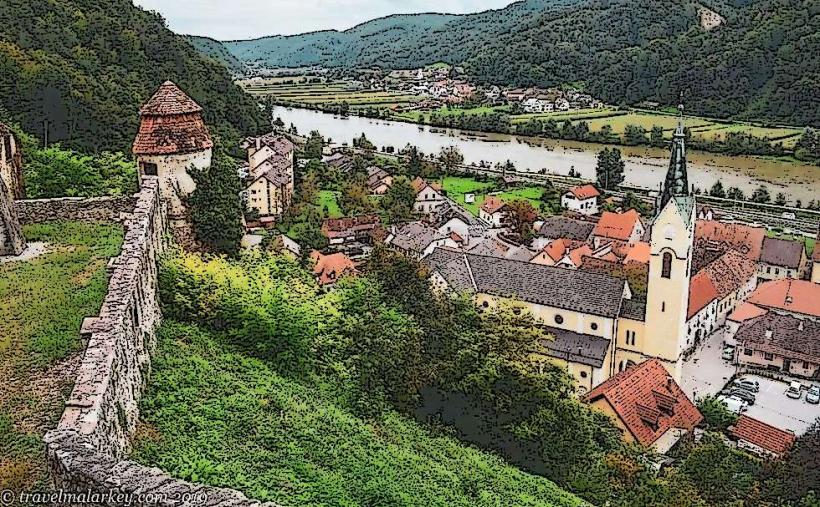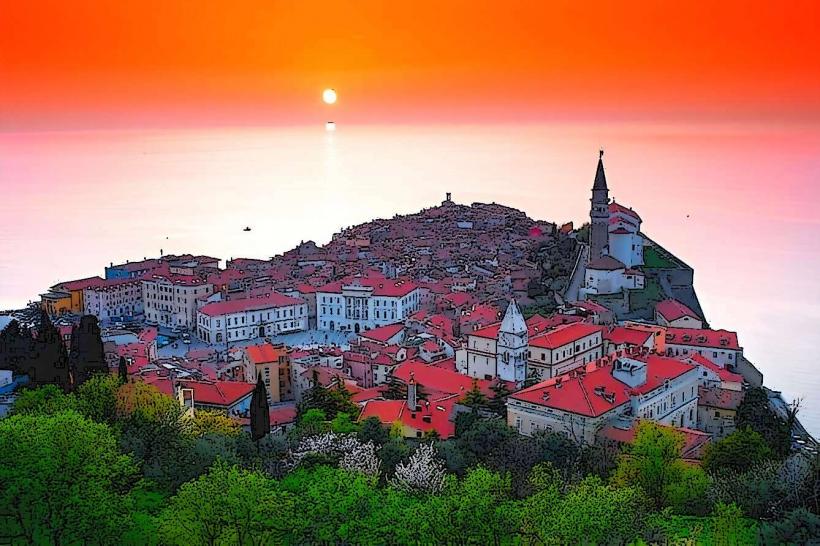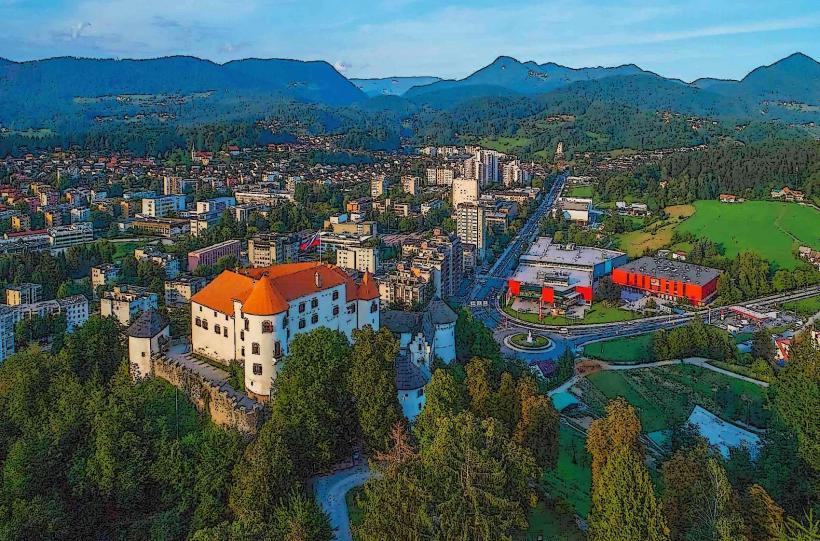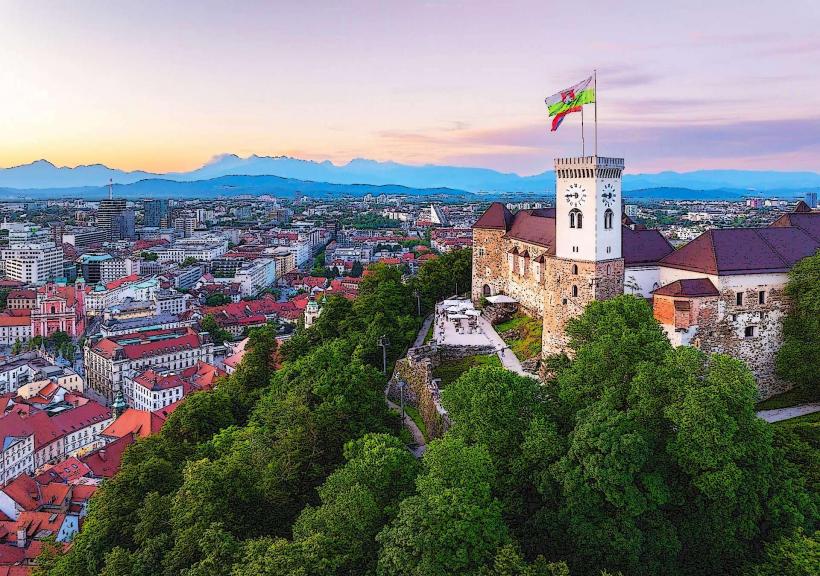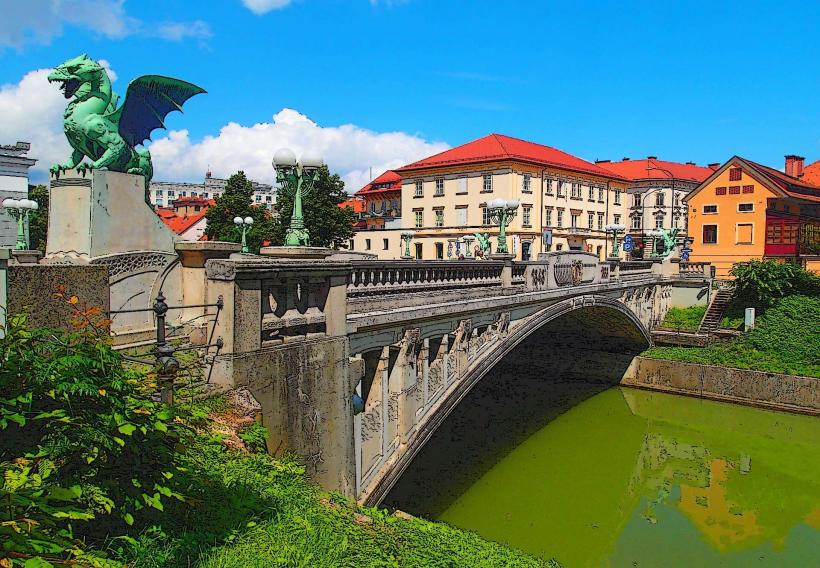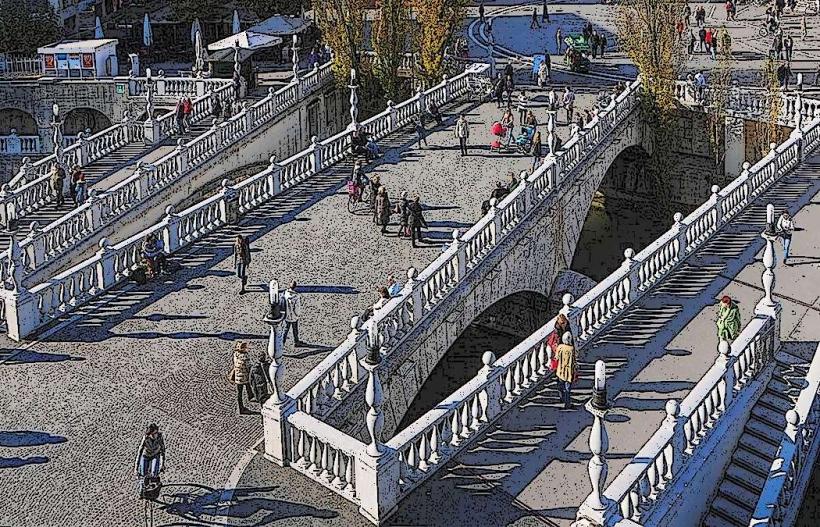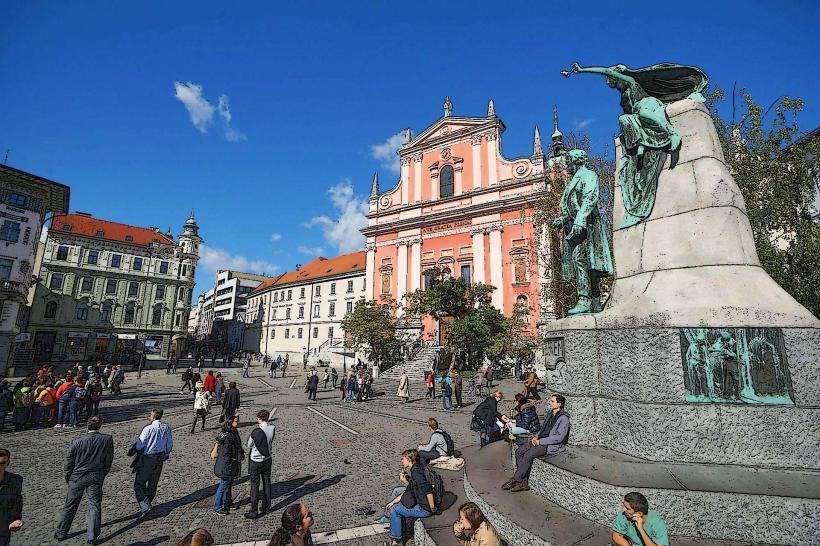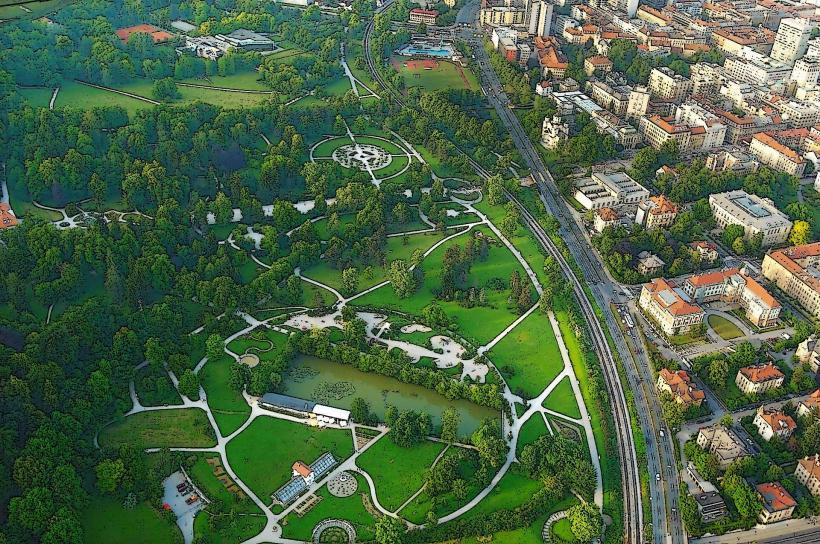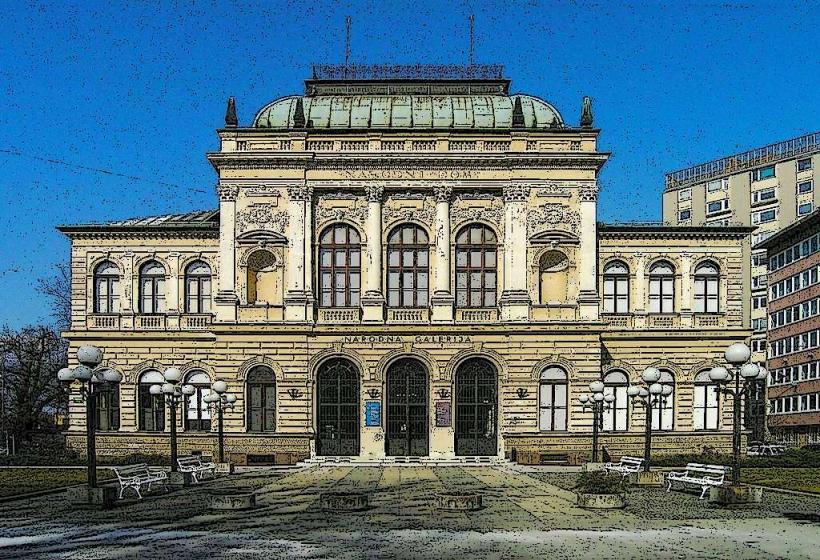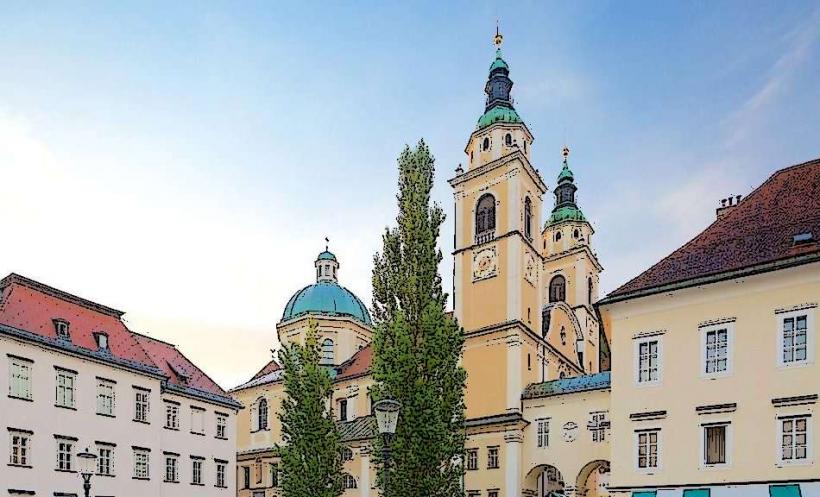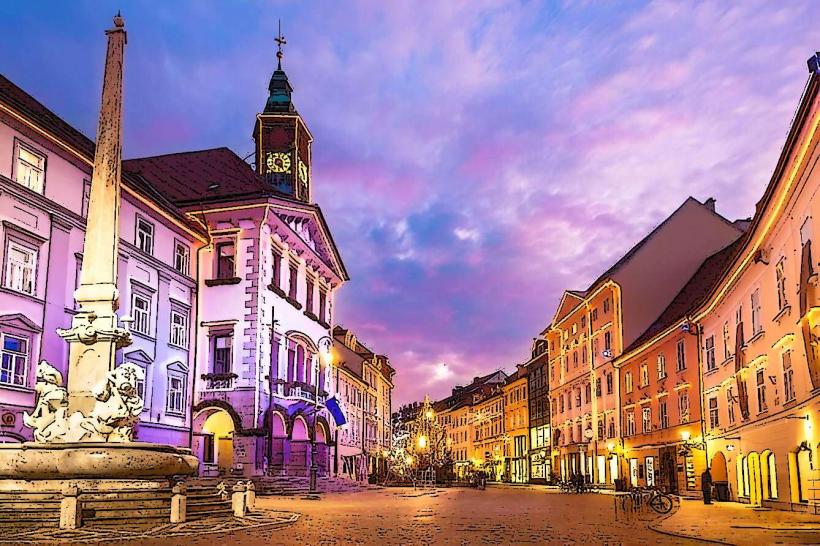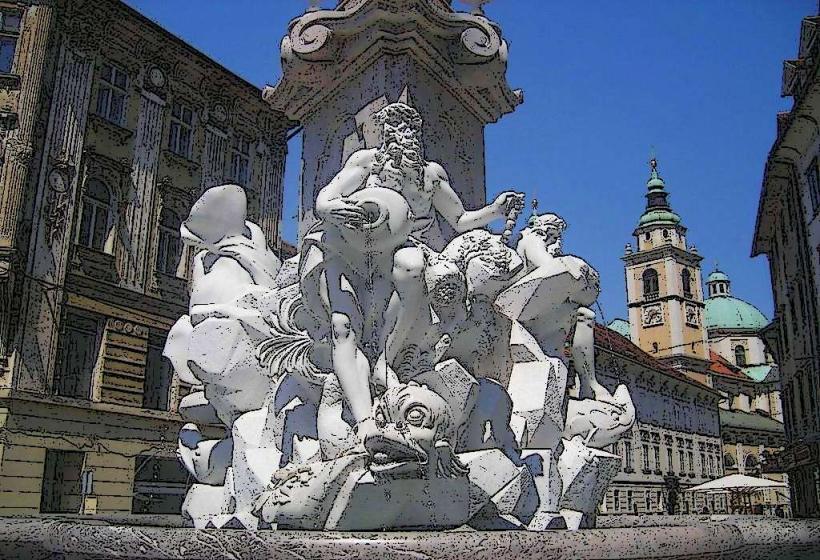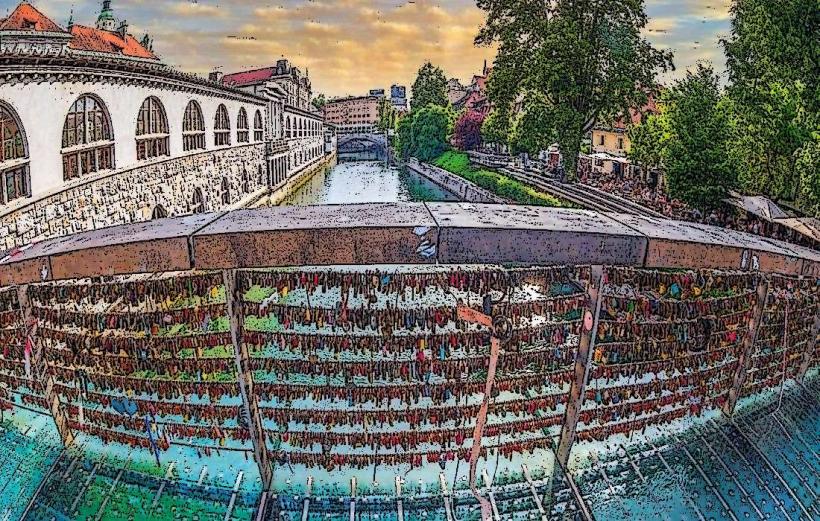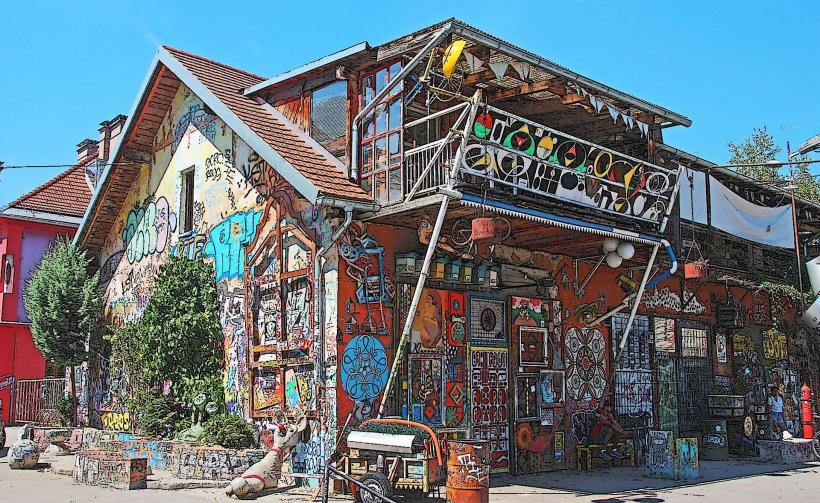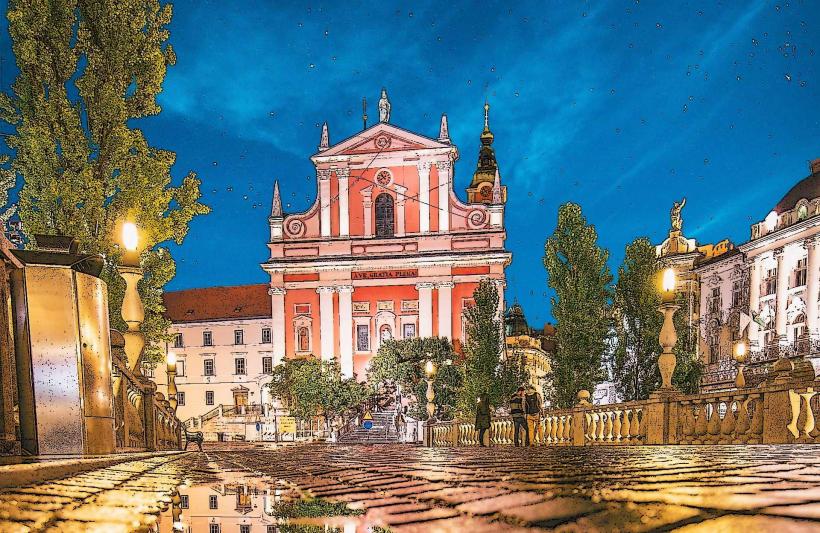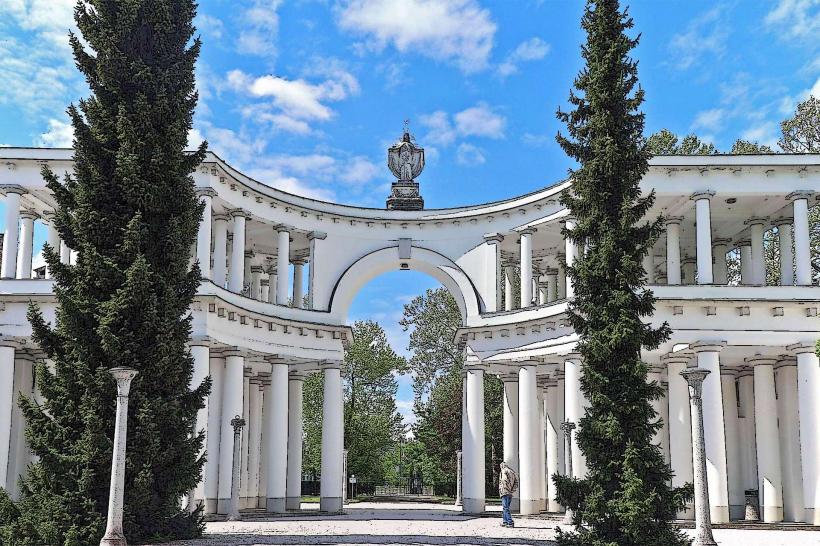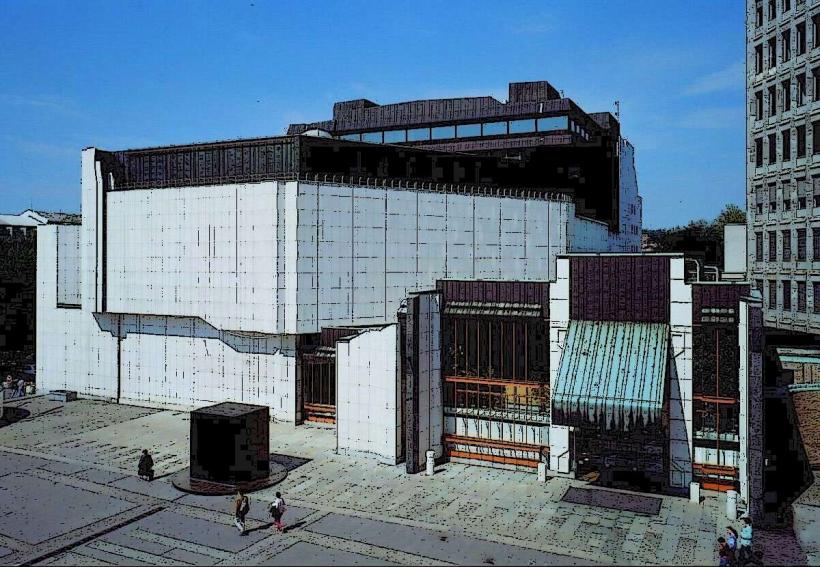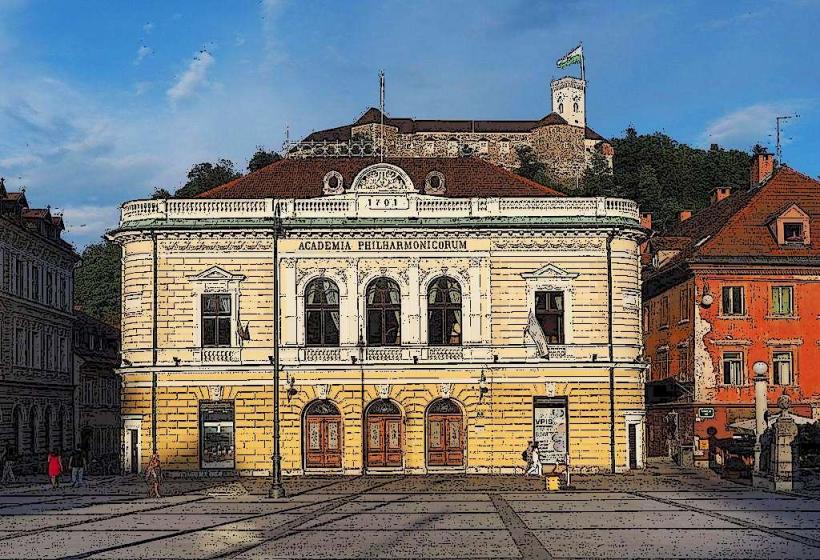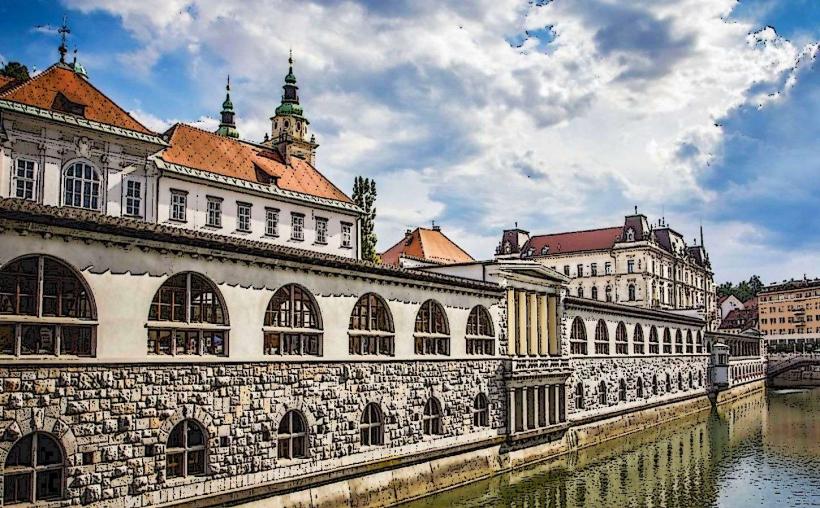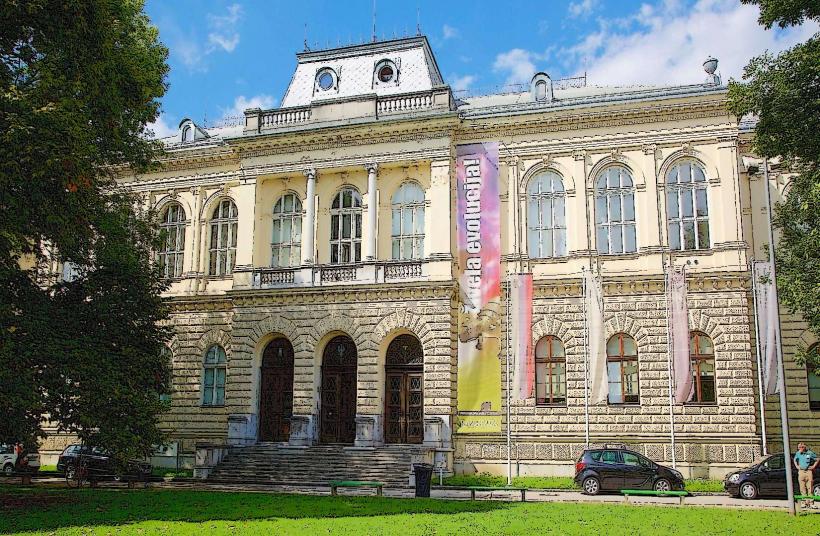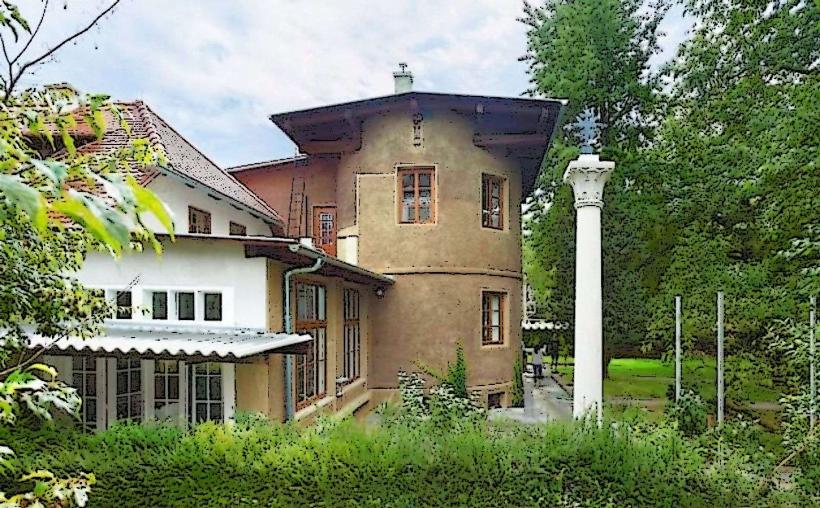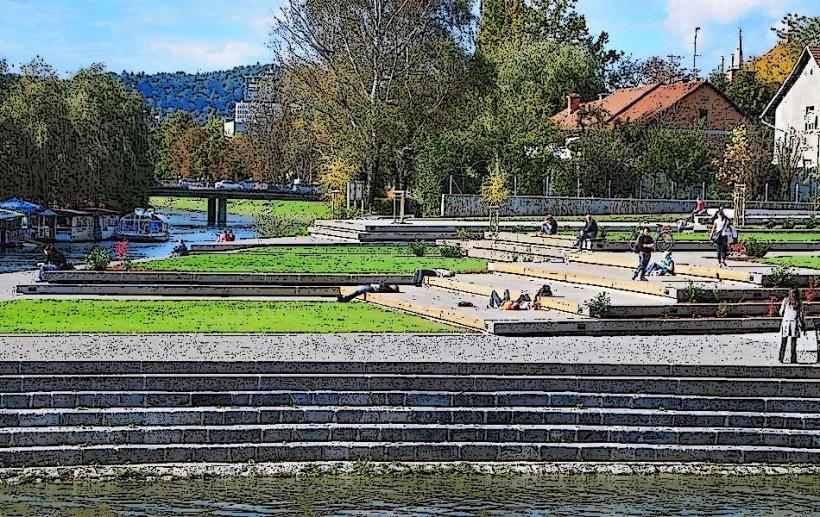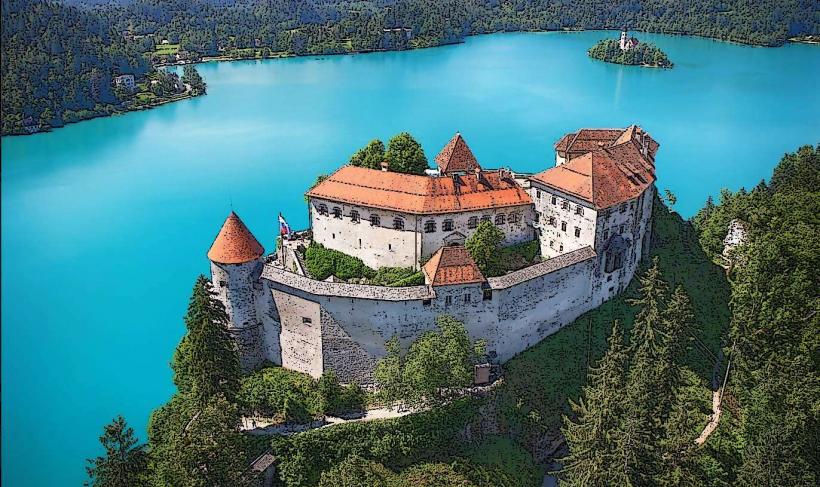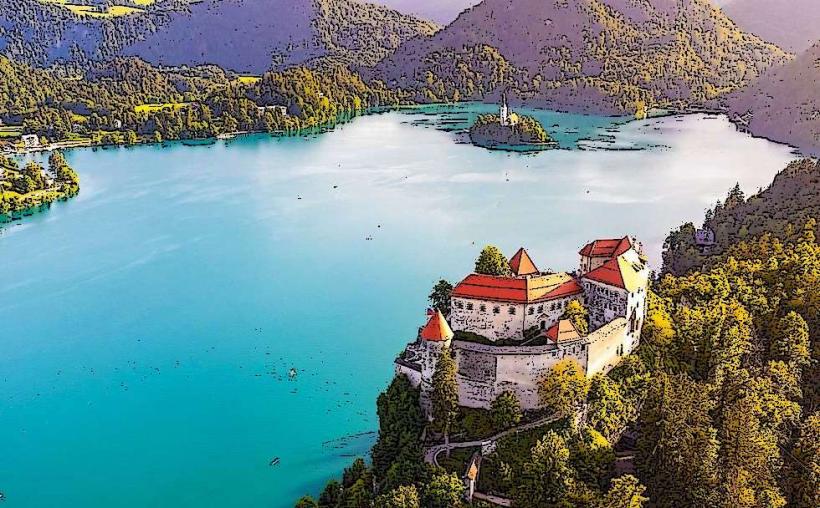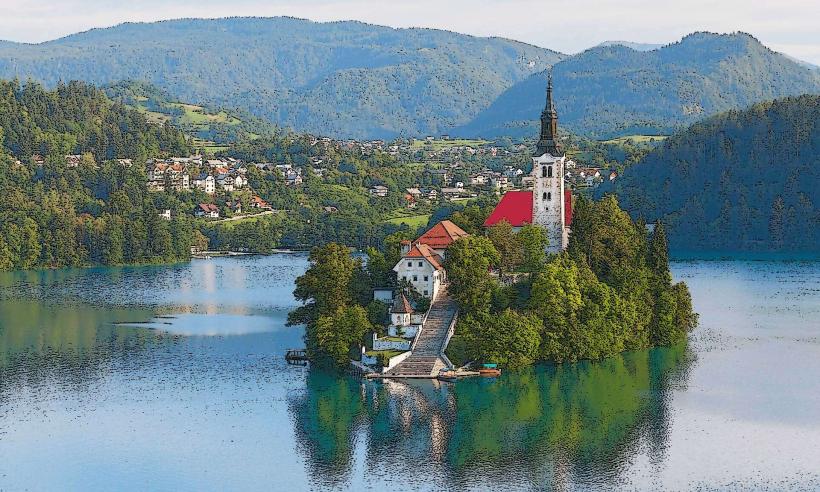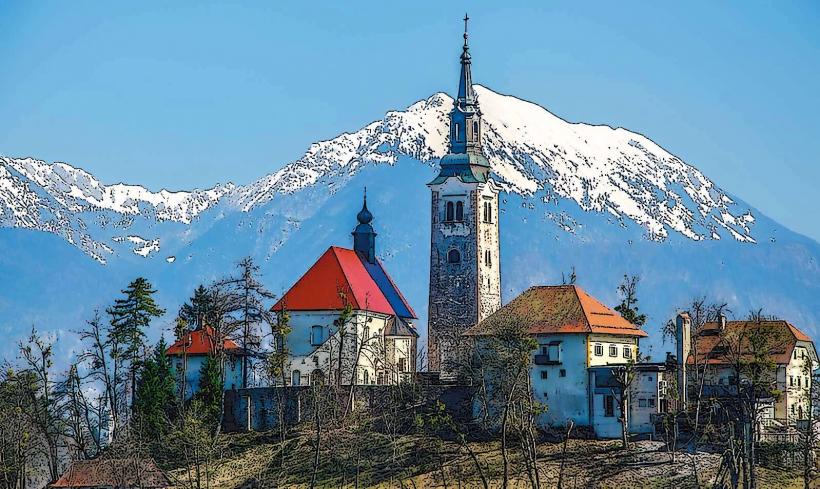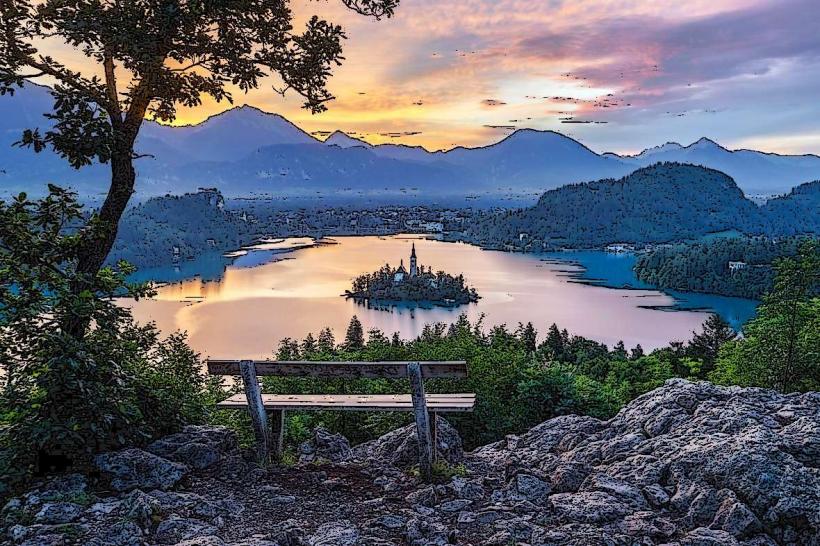Information
Country: SloveniaContinent: Europe
Slovenia, a small but remarkably diverse country in Central Europe, offers a fascinating blend of natural beauty, cultural richness, and historical significance. Here's a detailed look at the country's features beyond its landmarks:
Geography
- Location: Slovenia lies at the crossroads of Central Europe, Southern Europe, and the Balkans, bordered by Austria to the north, Italy to the west, Hungary to the northeast, and Croatia to the south.
- Size: With an area of just over 20,000 square kilometers, Slovenia is one of Europe’s smaller countries, yet it features an impressive variety of landscapes.
- Regions:
- Alpine Region: The Julian Alps, Kamnik-Savinja Alps, and the Karawanks dominate the north.
- Pannonian Plain: To the east, the plains and rolling hills provide fertile agricultural land.
- Karst Plateau: In the southwest, the unique limestone landscape is known for its caves, sinkholes, and underground rivers.
- Coastal Area: Though Slovenia has only 46 km of Adriatic coastline, it offers Mediterranean charm.
Climate
- Variety: Slovenia has three main climate zones:
- Continental: Found in the interior and eastern regions, with warm summers and cold winters.
- Alpine: In the mountainous north, with cooler temperatures and heavy snowfall in winter.
- Mediterranean: Along the coast, featuring mild winters and hot, dry summers.
- This climatic diversity supports a wide range of ecosystems and agricultural practices.
Nature and Biodiversity
- Slovenia is one of the most forest-rich countries in Europe, with forests covering about 60% of its land.
- Biodiversity: Home to over 24,000 animal species, Slovenia is a biodiversity hotspot. The brown bear, lynx, and ibex inhabit its forests and mountains.
- Protected Areas: Nearly 13% of Slovenia's territory is protected, including the Triglav National Park and numerous regional parks and reserves.
- Slovenia's rivers and lakes, such as the Sava, Drava, and Soča, are pristine and support diverse aquatic life.
Population and Society
- Population: Slovenia has around 2.1 million people, making it one of Europe's least densely populated countries.
- Ethnic Composition: The majority (over 80%) identify as Slovenes. Minority groups include Italians, Hungarians, and Croats.
- Languages: The official language is Slovene, a South Slavic language. In some regions, Italian and Hungarian are also official.
- Urban vs. Rural: While the capital, Ljubljana, is the urban and cultural hub, much of the population resides in smaller towns and villages, maintaining strong rural traditions.
Economy
- Key Sectors:
- Manufacturing: Slovenia excels in industries like car parts, electronics, and pharmaceuticals.
- Agriculture: Known for wine production, honey, and dairy products.
- Tourism: A significant contributor, thanks to Slovenia’s natural beauty and sustainable practices.
- Innovation: Slovenia has a growing tech sector and is investing in green energy and sustainable development.
Culture
- Folk Traditions: Slovenia has a rich tradition of folk music, dance, and storytelling. Instruments like the zither and accordion are central to folk music.
- Cuisine:
- Influenced by neighboring Italy, Austria, Hungary, and the Balkans.
- Dishes like potica (rolled nut cake), žganci (buckwheat porridge), and kranjska klobasa (Carniolan sausage) are staples.
- Festivals: The Kurentovanje festival, featuring traditional costumes and rituals, is a UNESCO-recognized event celebrating the end of winter.
Political System
- Slovenia is a parliamentary republic and a member of the European Union, NATO, and the Schengen Area.
- It gained independence in 1991 following the breakup of Yugoslavia.
- Government Structure: The President serves as the head of state, while the Prime Minister leads the government.
Sustainability and Quality of Life
- Green Initiatives: Slovenia is a global leader in sustainability, with Ljubljana awarded the title of European Green Capital 2016.
- Education: Free and high-quality public education is available, with a literacy rate close to 100%.
- Healthcare: Slovenia provides a universal healthcare system, ensuring access for all citizens.
Arts and Innovation
- Literature: Slovenia has a strong literary tradition, led by poets like France Prešeren, whose work is foundational to Slovenian identity.
- Modern Arts: Contemporary Slovenian artists and musicians are gaining international recognition.
- Science and Innovation: Slovenian researchers have contributed to fields such as nanotechnology, medicine, and green technologies.


